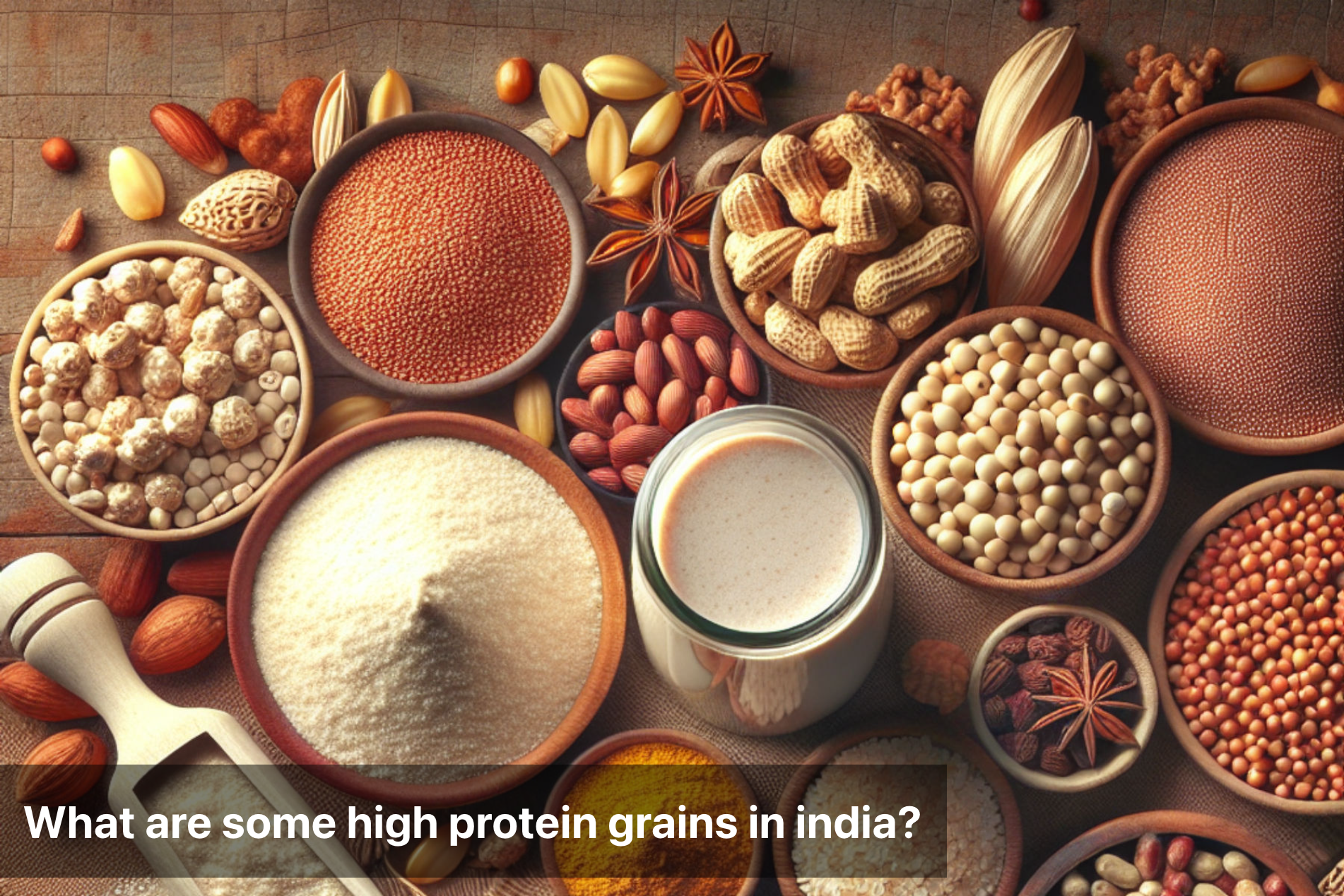
What are some high protein grains in india?
High-protein grains play a crucial role in the traditional Indian diet. These grains are not only a significant source of essential nutrients but also contribute to overall health and well-being. Incorporating high-protein grains into daily meals can elevate the nutritional value and promote a balanced diet.
When we talk about high-protein grains in India, we often think of staples like quinoa, amaranth, and buckwheat. These grains are not only rich in protein but also offer a range of vitamins, minerals, and antioxidants necessary for a healthy lifestyle.
In the diverse landscape of Indian cuisine, high-protein grains bring a unique flavor and texture to dishes, making them both nutritious and delicious. From hearty salads to wholesome porridges, the versatility of these grains allows for creative culinary adventures while reaping the health benefits they offer.
Understanding the significance of high-protein grains in the Indian diet opens up a world of possibilities for enriching our meals and embracing a lifestyle centered around holistic nutrition.

Protein-Packed Grains Popular in India
Grain |
Protein (g) |
Calories (kcal) |
Fat (g) |
Carbohydrates (g) |
Fiber (g) |
Other Nutrients |
|---|---|---|---|---|---|---|
Amaranth |
13.6 |
371 |
7 |
65 |
6.7 |
Calcium, Iron, Magnesium |
Quinoa |
14.1 |
368 |
6.1 |
64 |
7 |
Manganese, Phosphorus, Folate |
Buckwheat |
13.3 |
343 |
3.4 |
72 |
10 |
Magnesium, Copper, Manganese |
Finger Millet (Ragi) |
7.3 |
336 |
1.3 |
72 |
3.6 |
Calcium, Iron, Amino Acids |
Pearl Millet (Bajra) |
11.6 |
378 |
4.2 |
73 |
8.5 |
Magnesium, Iron, Zinc |
Sorghum (Jowar) |
11.3 |
329 |
3.5 |
72 |
6.7 |
Iron, Phosphorus, Potassium |
Foxtail Millet |
12.3 |
351 |
4.3 |
63 |
8 |
Iron, Calcium, Magnesium |
Barnyard Millet |
11.2 |
398 |
4 |
65 |
9.8 |
Iron, Zinc, B Vitamins |
Brown Rice |
7.5 |
111 |
0.9 |
23 |
1.8 |
Selenium, Manganese, Magnesium |
Barley |
9.9 |
354 |
2.3 |
73 |
17.3 |
Manganese, Selenium, B Vitamin |
5 easy ways to incorporate high protein grains in your diet
Breakfast Porridge:
Start your day with a nutritious porridge made from high-protein grains like quinoa, amaranth, or millet. Cook the grains in milk or a milk substitute, and add fruits, nuts, and a drizzle of honey or maple syrup for added flavor and nutrients.
Grain-Based Salads:
Use cooked grains such as quinoa, buckwheat, or barley as a base for hearty salads. Combine with fresh vegetables, lean proteins (like chicken or tofu), and a light dressing for a protein-packed meal. This can be a great option for lunch or dinner.
Healthy Snacks:
Prepare snacks using high-protein grains. Make energy bars or granola using quinoa, amaranth, or millet, mixed with nuts, seeds, and dried fruits. These snacks are convenient and nutritious for on-the-go eating.
Substitute for Rice or Pasta:
Replace traditional rice or pasta with high-protein grains in your meals. Use quinoa or barley as a side dish or in stir-fries, and opt for millet or buckwheat in place of pasta for a nutritious twist on classic recipes.
Baking:
Incorporate high-protein grains into your baking. Use quinoa flour, millet flour, or buckwheat flour in recipes for bread, muffins, pancakes, and cookies. These grains add a nutritional boost to your baked goods while maintaining great taste and texture.
Soups and Stews:
Add cooked high-protein grains like barley, quinoa, or millet to your soups and stews. These grains not only increase the protein content but also add texture and heartiness to your meals. This is an easy way to make your soups and stews more filling and nutritious.

High-Protein Grain Options in Indian Food
High protein grains play a crucial role in enhancing the nutritional value of the Indian diet. Incorporating these grains presents a myriad of benefits, contributing significantly to overall health and well-being. By including high protein grains in our meals, we can ensure a balanced intake of essential nutrients required for optimal functioning of the body.
In India, the availability of diverse high protein grains such as quinoa, amaranth, and buckwheat offers a plethora of options to individuals looking to enrich their diet. These grains not only provide a rich source of proteins but also offer various vitamins, minerals, and antioxidants essential for maintaining good health.
When exploring ways to enhance the nutritional content of meals, high protein grains serve as an excellent choice. Their versatility allows for creative and delicious culinary creations that can easily be integrated into traditional Indian dishes. Whether used as a primary ingredient or as a complementary addition, these grains add a nutritional punch to everyday meals.
Thus, the inclusion of high protein grains in the Indian diet is paramount for promoting health and well-being. Embracing the variety of options available ensures a wholesome and balanced approach to nutrition, making each meal not only delicious but also highly nourishing.
This Blog post is an initiative by Lo! Foods, to provide accurate and Nutritionist / Doctor approved information related to Health. Lo! Foods is India's leading brand for Everyday Functional Foods. Foods designed for specific Health conditions or Needs. Lo! Foods also runs India's largest range of Low Carb Healthy Cloud Kitchens, under the brand names of Lo!, ProteinChef, ATH (All Things Healthy) and DiabeSmart.















Leave a comment
Your email address will not be published.